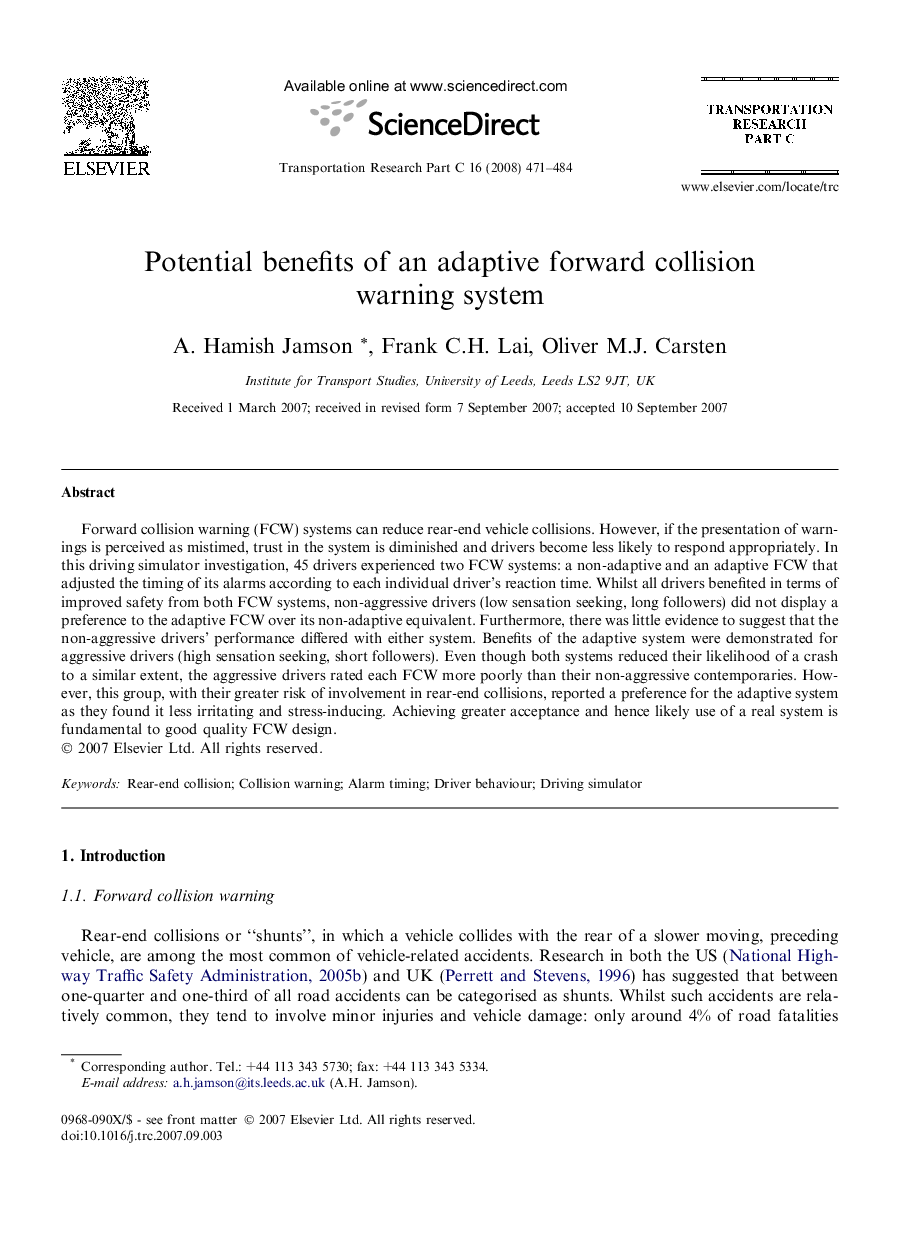| Article ID | Journal | Published Year | Pages | File Type |
|---|---|---|---|---|
| 525309 | Transportation Research Part C: Emerging Technologies | 2008 | 14 Pages |
Forward collision warning (FCW) systems can reduce rear-end vehicle collisions. However, if the presentation of warnings is perceived as mistimed, trust in the system is diminished and drivers become less likely to respond appropriately. In this driving simulator investigation, 45 drivers experienced two FCW systems: a non-adaptive and an adaptive FCW that adjusted the timing of its alarms according to each individual driver’s reaction time. Whilst all drivers benefited in terms of improved safety from both FCW systems, non-aggressive drivers (low sensation seeking, long followers) did not display a preference to the adaptive FCW over its non-adaptive equivalent. Furthermore, there was little evidence to suggest that the non-aggressive drivers’ performance differed with either system. Benefits of the adaptive system were demonstrated for aggressive drivers (high sensation seeking, short followers). Even though both systems reduced their likelihood of a crash to a similar extent, the aggressive drivers rated each FCW more poorly than their non-aggressive contemporaries. However, this group, with their greater risk of involvement in rear-end collisions, reported a preference for the adaptive system as they found it less irritating and stress-inducing. Achieving greater acceptance and hence likely use of a real system is fundamental to good quality FCW design.
